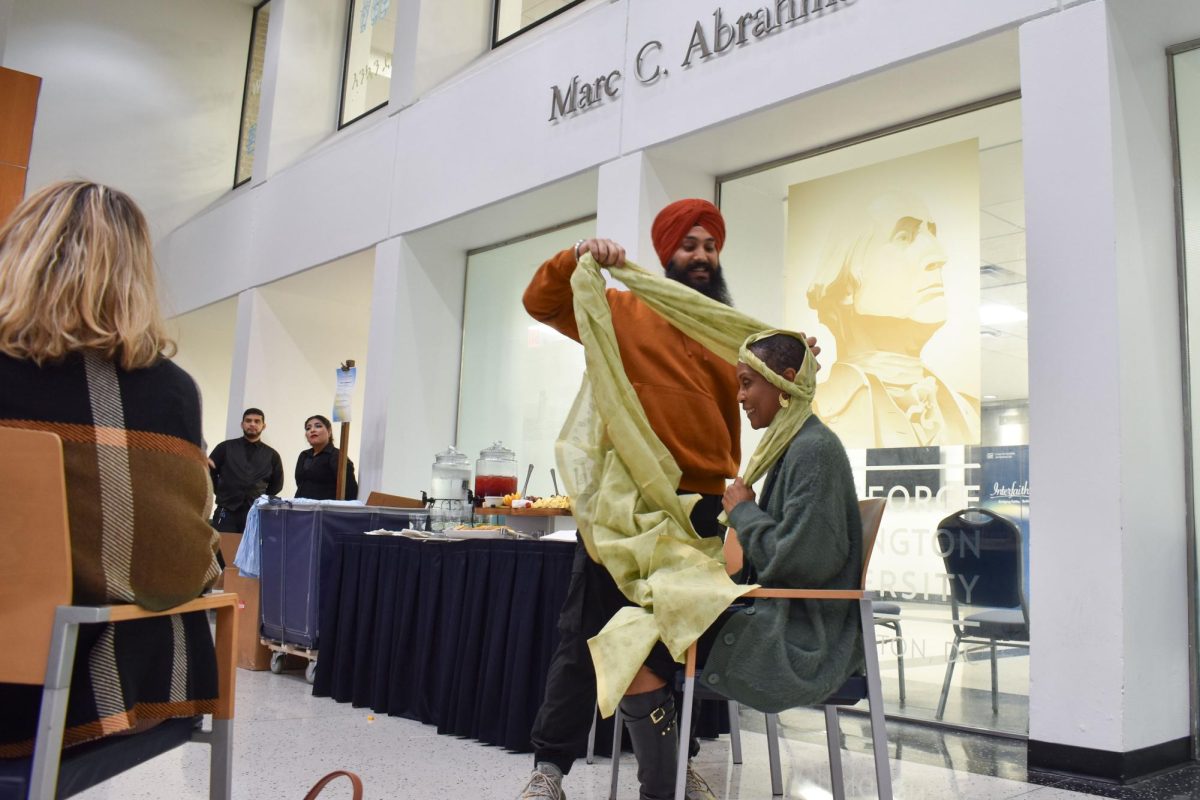GW hasn’t spent money lobbying the federal government since 2007, unlike most of its competitor schools, which each spent an average of about $244,170 so far this year to advise policy makers in areas like federal financial aid and research spending.
The University has not registered to lobby on Capitol Hill or as a client of a lobbying firm in the last five years, though that doesn’t mean it has not influenced federal policy. Between 2004 and 2007, the University spent an average of $295,140 on lobbying annually, according to the Sunlight Foundation’s Influence Explorer database and the Center for Responsive Politics’ Open Secrets database.
GW cut off its federal lobbying activities in 2009, after officials said further spending wouldn’t be worthwhile. University spokesman Kurtis Hiatt said GW still employs staff members who are registered to lobby local officials in D.C. and Virginia, and that it tracks national issues like college access, student aid and research funding.
“We employ staff who work with federal offices. For the past several years we have concentrated our efforts on advocacy and education efforts,” he said in an email.
Most of the 14 schools GW considers its peers have steadily decreased the amount they spend on lobbying over the past four years. Northwestern University spent the most on lobbying this year, doling out $559,000. That’s about half as much as the institution spent in 2007.
Seven schools, including Duke, New York and Vanderbilt universities, have spent more than $200,000 each this year – at a time when higher education faces criticism for rising costs and national funding for research grants has steadily decreased.
Boston University, which has spent $410,000 this year, has operated an office in the District since 2012. Emily Burlij, associate director of federal relations for BU, said a D.C. office helps the school form stronger ties with policymakers.
She said the small office, as well as lobbying consultants, focus on issues like research funding and financial aid.
“In general, we’ve seen such a decline in funding for federal research and it’s really devastating for the next generation of scientists,” she said. “If the universities aren’t down here speaking out on behalf of it, it’s already having a detrimental effect on research.”
Historical ties to the government
D.C. schools may see lobbying as an unnecessary use of money because of their nearness to Capitol Hill. American University stopped lobbying federal policy makers in 2010, and Georgetown University spent $60,000 lobbying so far this year, the smallest amount among GW’s peer institutions that lobbied.
GW officials can still unofficially show their support for federal policies, and many top officials visit the White House and other federal departments several times each year.
University President Steven Knapp visited the White House at least twice within the past year, attending summits on college affordability and sexual assault prevention. Vice Provost for Diversity and Inclusion Terri Harris Reed met with Attorney General Eric Holder and other university officials at the Department of Justice last May to discuss sexual assault on college campuses.

Vice President for External Relations Lorraine Voles and Athletic director Patrick Nero also went to the White House for meetings on sexual assault.
The University spent $280,000 in 2006 to lobby the government for funds for the GW Cancer Institute. GW also spent $10,000 over two years to lobby the Health and Human Services Department, which involved obtaining information for a health policy study about low-income health clinics.
Dan Auble, a senior researcher at the Center for Responsive Politics, said many schools spend a “considerable amount of money” on lobbying, but that overall the amount of money spent on lobbying across all fields, including education, has decreased since 2010.
He said that’s largely happened because the U.S. House of Representatives passed a bill in 2010 that banned earmarks, and renewed it in 2012.
“It may be they only really get in the game where there’s some regulation that’s important to them,” he said.
Between 2004 and 2007, GW hired several lobbyists and firms to represent it on the Hill, including Zuckerman Spaeder LLP, which also lobbied for Momenta Pharmaceuticals, and O’Neill and Associates, which has also been hired by Clear Channel Communications and the American Hospital Association.
Some of GW’s former lobbyists included Robert Livingston, a former Republican Congressman from Louisiana. Livingston said he only worked with the University on one project about five years ago. His firm represented GW between 2004 and 2006 on Department of Transportation appropriations that were related to engineering programs at the Virginia Science and Technology Campus.
“That happens all the time in the lobbying world,” he said. “When you have a special project to work on, you work on it and then it runs out.”
Other means to influence policy
GW pulled back its lobbying activities after Knapp took office in 2007: It spent $290,000 in 2006, and that total dropped to $40,000 the following year. The University then began focusing more on relationship building rather than direct lobbying by having professors engage with federal officials and aligning with national goals for research projects.
Several administrators have received presidential appointments, too, including Michael Feuer, dean of the Graduate School of Education and Human Development, who Obama appointed as a member of the Board of Directors of the National Board for Education Sciences last month.
Voles is the former deputy press secretary for President Bill Clinton and former spokesperson for Vice President Al Gore. Senior Associate Vice President for Safety and Security Darrell Darnell worked for the White House’s National Security Staff.
Lynn Goldman, dean of the Milken Institute School of Public Health, was confirmed as an assistant administrator for the Environmental Protection Agency’s Office of Prevention, Pesticides and Toxic Substances under Clinton. Kathleen Merrigan, who was appointed GW’s executive director of sustainability last February, is also the former U.S. Department of Agriculture deputy secretary.
The University may focus on its relationships with alumni or donors on Capitol Hill or with other agencies to advance their interests rather than spending money, said Mike Fulton, a lobbyist who specializes in higher education at the Asher Agency.
The School of Nursing successfully lobbied the Virginia state legislature for financial aid as it was starting a new program. Knapp met privately with former Virginia Gov. Bob McDonnell in 2011, with the president offering support for a state higher education bill.
The University has also sent officials to make appeals to the D.C. government, with plans to push for off-campus jurisdiction for University Police Department officers.
Two years ago, Knapp and American University President Neil Kerwin also met with D.C. Mayor Vincent Gray, a GW alumnus, to discuss a citywide focus on sustainability.
GW relies on larger organizations to lobby on their behalf, like the National Association of Independent Colleges and Universities, of which GW is a member. The organization represents more than 900 private, nonprofit colleges across the country when meeting with policymakers and advises them how legislative actions and new regulatory rules could affect their institutions.
“They represent their members and they have a lobbyist or a team of lobbyists that follows these issues,” Fulton said. “Some schools may decide ‘I’m going to let my trade association tell me what I need to know.’”
Sarah Flanagan, vice president for government relations and policy at the National Association of Independent Colleges and Universities, said her organizations’ top priority is to maintain funding for federal student aid programs, more specifically Pell Grants.
GW likely doesn’t receive individualized help from the organization, since Flanagan said the organization focuses on issues that are applicable to the majority of its members.
“If 100 of our schools have a problem and it’s because of a federal regulation, then we might look into it,” she said. “We work on behalf of the whole sector.”







